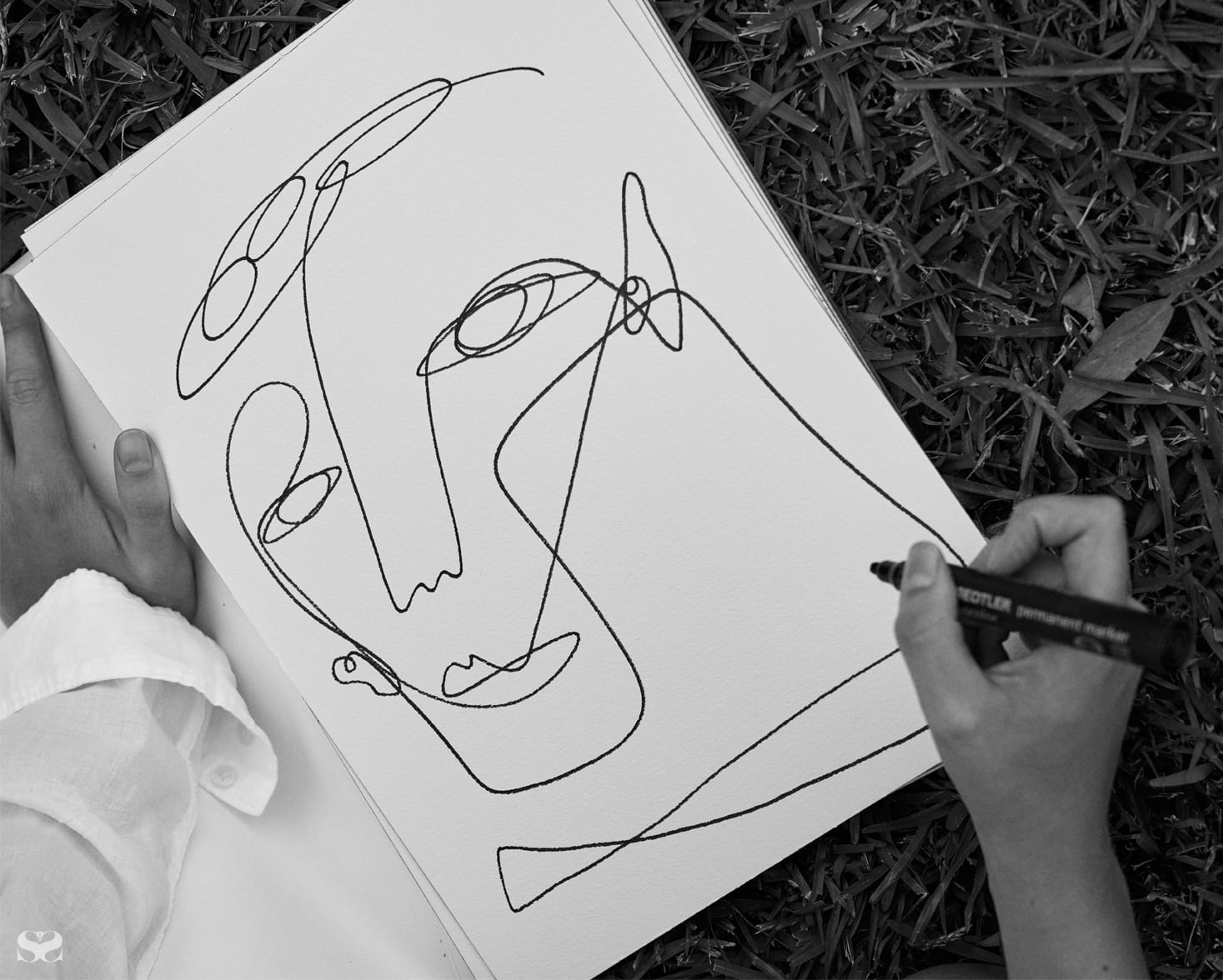
Black lines curl and intersect, abstract but sensual. Faces tangled up in blue peer from textured white paper – some inquisitive, some wise. Perfectly imperfect. Beautifully human. They seem innately feminine in their curves, in their feeling, though perhaps that’s an interpretation born of knowing who’s behind them: Copenhagen-based artist Christiane Spangsberg, a woman wholly compelling as that which she creates. But, actually, Spangsberg’s practice began in exploration of the masculine. “It is only this year I started to portrait women. Before my focus was unconsciously on men,” she explains. Still, that’s not to say the gendering of her artworks is purely black and white. Those lines and shapes are inherently, inescapably personal.


“I’ve come to realise that all my work is a portrait of myself in a way. And if this is true, my work has feminine attributes.”
The intimate origins of Spangsberg’s works are brought into soft focus for her recent, sold-out, exhibition, A Summer in the Nude: a collection of blind-drawn, one-line portraits and figure studies concerned with the dual nature of being a woman – in Spangsberg’s words, “Like the ocean. Powerful but soft.”
“My style evolves with every new thing I see ... It started even before I saw the one-line pieces by Picasso and it will continue through my amazement of the brushwork by the French early 20th century painters. I like to remove all noise so the pure expression remains. Whatever that is.”

Of her newfound fascination with the female form, Spangsberg tells: “It is what I can relate to and how I can speak honestly of what I know. To draw my attention inwards is a way to understand things about myself and in this way understand other women too ... We have to practise to speak from a place of love when we look in the mirror. To remind myself I draw the female form – I show the beauty in the mistakes. Or at least I try.” Perhaps by means of personal challenge, this exploration of imperfection is central to Spangsberg’s creative journey, a kind of mantra realised through repetition.
“When we realise that imperfection is the root of our individual perfection. There’s not more to do than follow that road and practice. Because imperfection is practice. Every day.”

PHOTOGRAPHY Alexandra Nataf
FASHION Ilona Hamer



